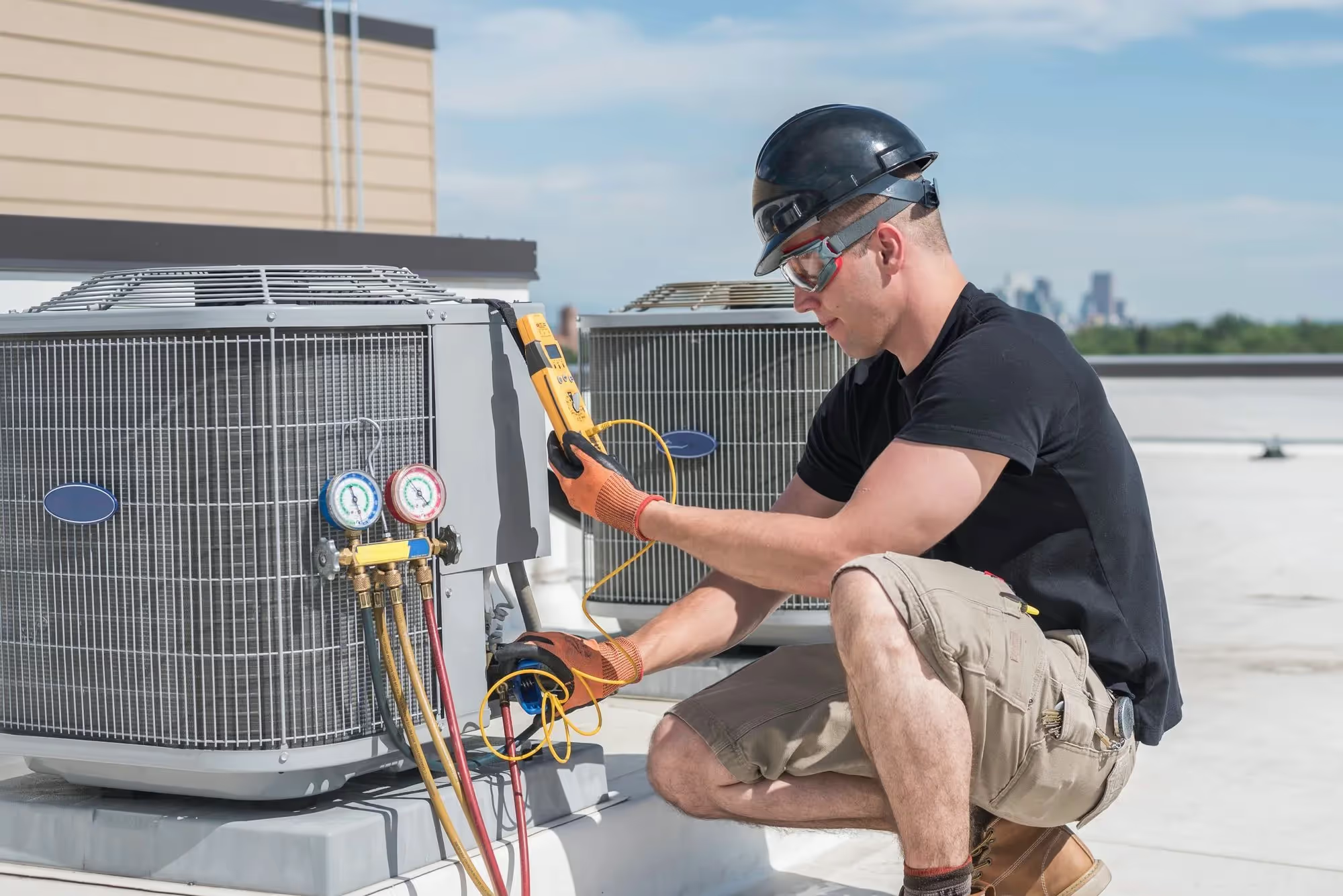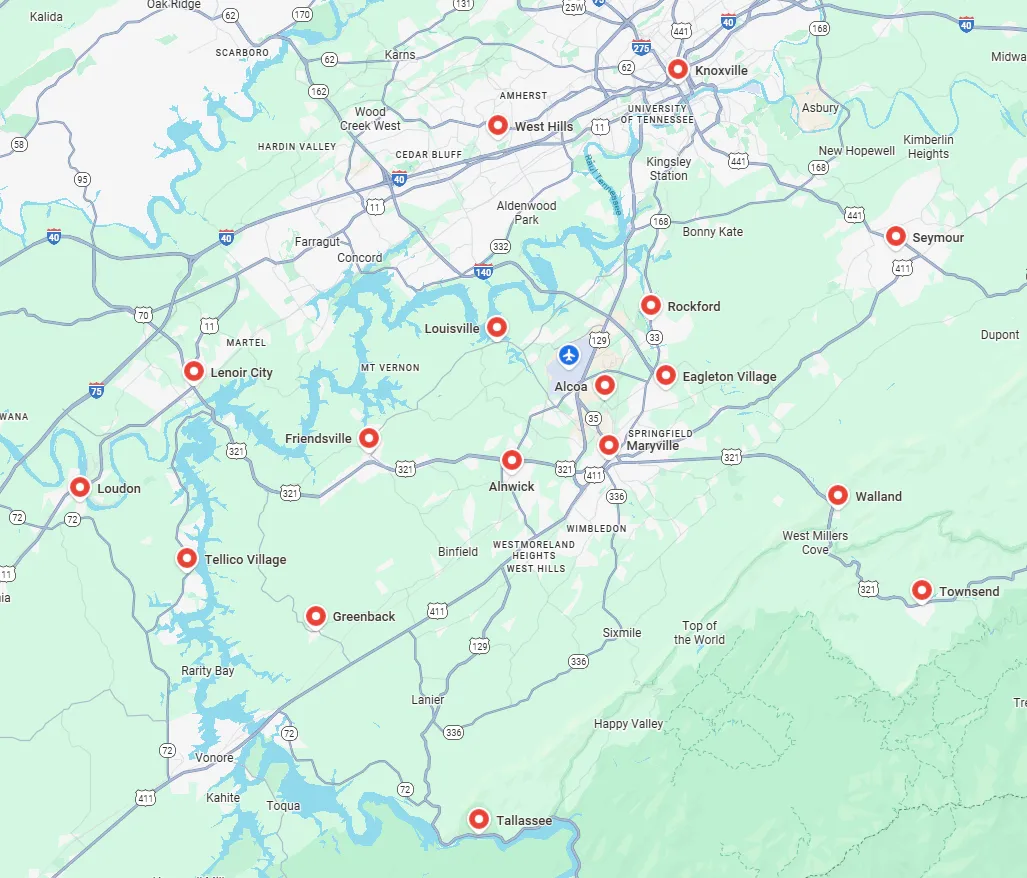The Ultimate Guide to HVAC Maintenance for Homeowners

The Ultimate Guide to HVAC Maintenance for Homeowners
As a homeowner, one of the most crucial systems to maintain is your HVAC system. Proper HVAC maintenance ensures that your heating and cooling systems run efficiently year-round, keeping your home comfortable and energy bills low. Regular maintenance can extend the life of your system, improve air quality, and prevent costly repairs. This guide will provide a comprehensive overview of HVAC maintenance, focusing on practical tips that homeowners can follow to keep their systems running smoothly.
Whether you're preparing for winter heating or summer cooling, understanding your HVAC system's needs is key to preventing unexpected issues. Follow these HVAC maintenance tips to ensure your system stays in top shape.
1. Change Air Filters Regularly
One of the easiest yet most important HVAC maintenance tasks you can perform is changing your air filters regularly. Dirty air filters restrict airflow, forcing your system to work harder, which reduces efficiency and can lead to system damage. Typically, air filters should be replaced every 1-3 months depending on your system's usage, the season, and the type of filter.
Using high-quality filters can also improve the air quality in your home, trapping more dust, pollen, and other allergens. For best results, mark your calendar or set reminders to check and replace your filters periodically.
2. Inspect and Clean the Outdoor Unit
Your HVAC system's outdoor unit, usually referred to as the condenser, needs proper airflow to function efficiently. Debris such as leaves, grass, and dirt can accumulate around the unit, restricting airflow and potentially causing the system to overheat.
For effective HVAC maintenance, regularly inspect the outdoor unit and clear away any debris. You should also trim back any plants or bushes to ensure at least two feet of clearance around the unit. Additionally, gently rinse the condenser coils with a hose to remove dirt and improve heat exchange efficiency.
3. Check and Clean Vents and Registers
Blocked or dirty vents and registers can negatively impact your HVAC system’s performance by limiting the flow of air throughout your home. As part of your HVAC maintenance routine, regularly check all vents and registers to ensure they are not obstructed by furniture, rugs, or other items.
Additionally, use a vacuum to clean dust and debris from the vents. Keeping these areas clean helps to maintain proper airflow, ensuring your system works efficiently and provides even temperature control throughout your home.
4. Test the Thermostat
Your thermostat plays a crucial role in your HVAC system’s performance. As part of your HVAC maintenance routine, test your thermostat to ensure it is working properly. If you have an older, manual thermostat, consider upgrading to a programmable or smart thermostat, which allows you to set schedules based on your routine, improving energy efficiency.
If your home isn't maintaining a consistent temperature or your system cycles on and off frequently, there may be an issue with your thermostat. Check the settings and recalibrate if necessary, and consult your HVAC technician if the problem persists.
5. Inspect Ductwork for Leaks
Leaky ductwork can cause heated or cooled air to escape before it reaches your living spaces, making your system work harder and driving up energy costs. As part of regular HVAC maintenance, inspect your ducts for any visible signs of leaks or damage. Common problem areas include joints where duct sections meet.
If you notice any leaks, you can seal them using metal-backed duct tape or mastic sealant. Ensuring that your ductwork is properly sealed can significantly improve the efficiency of your HVAC system, reducing energy waste and keeping your home more comfortable.
6. Clean the Evaporator and Condenser Coils
Over time, dirt and debris can accumulate on the evaporator and condenser coils, reducing your system's efficiency and causing it to work harder to cool or heat your home. Cleaning the coils is a critical part of HVAC maintenance.
For the outdoor condenser coils, you can use a garden hose to rinse away debris. For indoor evaporator coils, a soft brush or vacuum with a brush attachment can be used to clean off dust. Cleaning the coils allows for better heat exchange, improving the overall efficiency of your system.
7. Monitor System Performance
One of the best ways to stay on top of HVAC maintenance is to monitor your system's performance closely. Pay attention to any unusual noises, changes in airflow, or unexpected spikes in your energy bills. These could be early signs of a problem that needs to be addressed.
If you notice any issues, such as your system taking longer to reach the desired temperature or your energy costs suddenly rising, it may be time to schedule a professional inspection. Catching problems early can help prevent more significant and expensive repairs down the line.
8. Schedule Annual Professional Maintenance
While many HVAC maintenance tasks can be done on your own, it’s essential to schedule annual professional Tune-Ups. A professional HVAC technician will perform a more thorough inspection, cleaning, and adjustment of your system to ensure it operates efficiently.
During a professional maintenance visit, the technician will check for refrigerant leaks, clean the blower motor, test electrical components, and inspect the system for any signs of wear or damage. Regular professional maintenance can help extend the life of your HVAC system and catch any small issues before they turn into major problems.
9. Check Refrigerant Levels
Low refrigerant levels can reduce the cooling efficiency of your HVAC system and lead to higher energy bills. As part of your HVAC maintenance routine, it's important to ensure the refrigerant levels are within the recommended range.
Refrigerant should only be handled by professionals, so if you suspect that your system is low on refrigerant, call in an HVAC technician. Signs of low refrigerant levels include your system blowing warm air or taking longer to cool your home.
10. Prepare Your HVAC System for Seasonal Changes
As the seasons change, so do your HVAC system’s needs. Preparing your system for winter and summer is a critical part of HVAC maintenance. In the fall, check that your heating components are in good condition and ready for colder weather. In the spring, ensure your cooling system is functioning efficiently before the summer heat sets in.
For both seasons, it’s a good idea to have your system professionally inspected to make sure it’s ready for the demands of the upcoming months. This proactive approach can prevent breakdowns and ensure your home stays comfortable year-round.
Frequently Asked Questions (FAQ)
Q: How often should I change my HVAC air filters?
A: Air filters should be changed every 1-3 months depending on usage and filter type.
Q: Can I clean my outdoor condenser unit myself?
A: Yes, you can clean the outdoor unit by clearing debris and gently rinsing the condenser coils with a garden hose.
Q: How can I tell if my HVAC system has a refrigerant leak?
A: Signs of a refrigerant leak include warm air blowing from your system, ice buildup on the coils, and hissing sounds.
Q: How often should I schedule professional HVAC maintenance?
A: Professional maintenance should be scheduled at least once a year, preferably before summer and winter.
Q: Why is my HVAC system making strange noises?
A: Unusual noises can indicate loose parts, motor issues, or debris stuck in the system. It’s best to have a professional inspect it.
Q: What temperature should I set my thermostat to for energy efficiency?
A: For optimal energy efficiency, set your thermostat to 78°F in the summer and 68°F in the winter.
Q: Can I seal duct leaks myself?
A: Yes, small duct leaks can be sealed with metal-backed duct tape or mastic sealant. However, larger leaks may require professional assistance.
Q: How can I improve the energy efficiency of my HVAC system?
A: Regular maintenance tasks such as changing filters, cleaning coils, and sealing ducts can improve energy efficiency.
Q: What should I do if my energy bills suddenly increase?
A: A sudden spike in energy bills could indicate issues with your HVAC system. Check for dirty filters, thermostat problems, or leaky ducts.
Q: When should I replace my HVAC system?
A: If your system is more than 10-15 years old and requires frequent repairs, it may be time to consider a replacement.





